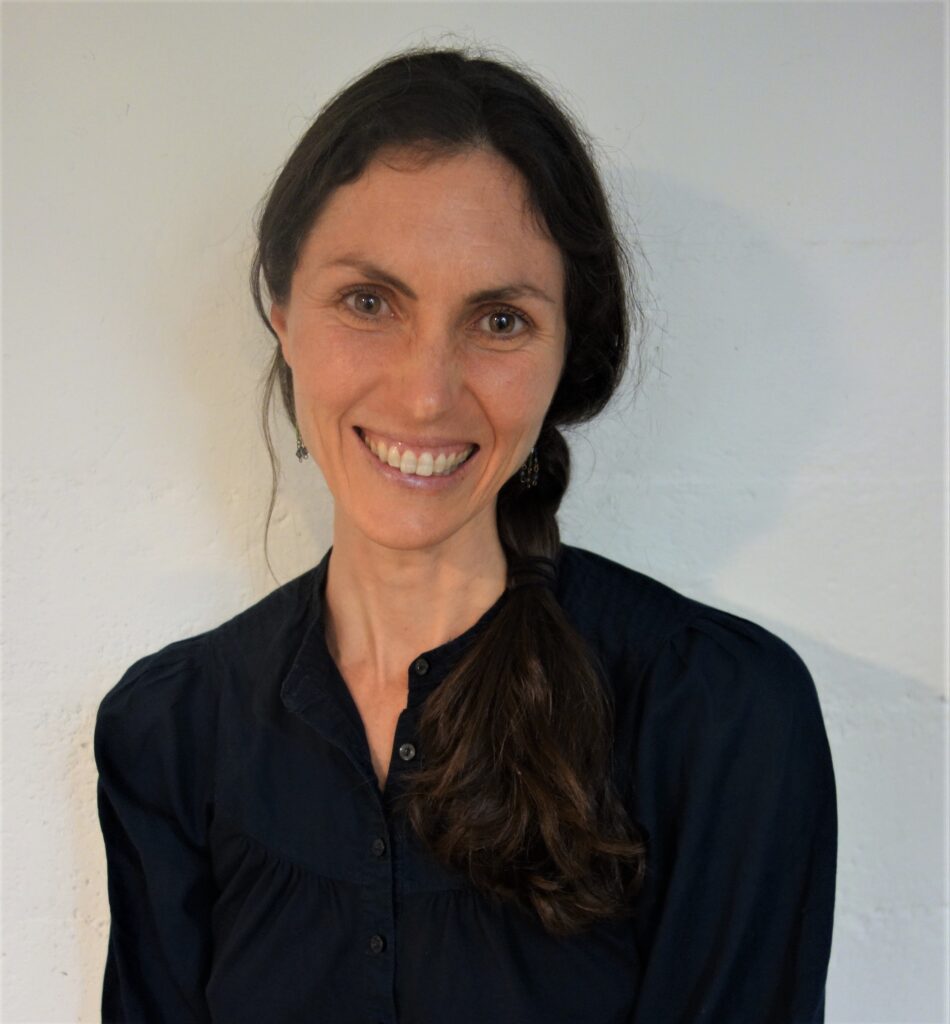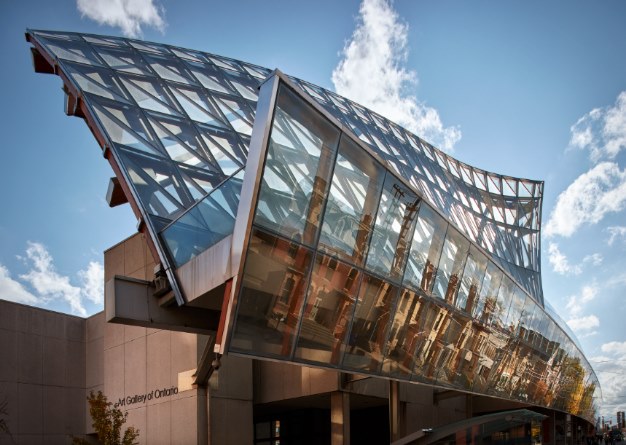Lauren Spring
Teaching and Learning Consultant
General Background
I’ve always had a passion for storytelling, big questions, community connection and the powerful link between aesthetic force and adult education.
Fittingly, perhaps, I started off my professional and academic career in the world of theatre and performance. After close to a decade working as an actor (even attending clown school in Paris, France), I started to realize that while I loved many aspects of this work–primarily the coming together of artists and audience members around stories driven by complex conundrums and emotions–I developed a distaste for many other aspects of the “industry”. Below are two pictures of me: The first is during an improv performance in Lyon, France. The second is a still from an episode of Murdoch Mysteries where I played “crying nurse”. (Perhaps if I had stuck with acting long enough, I one day would have been cast as a character with a real name).
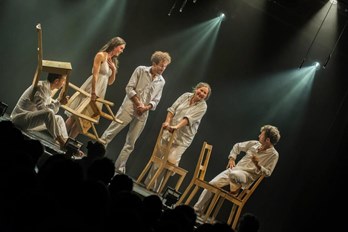
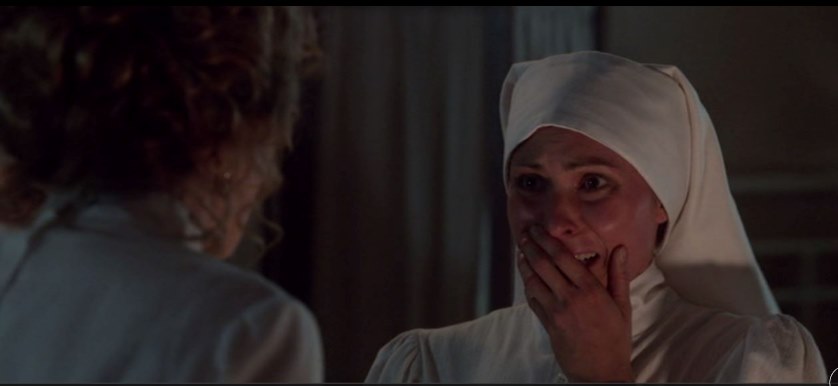
Wanting to broaden my horizons, I completed a Master’s Degree in International Development where I conducted research about trauma alongside refugees at the Canadian Centre for Victims of Torture, and explored ways in which education and the arts could help foster successful coping after extremely difficult life events. This work later led to my PhD research in Adult Education and Community Development at the University of Toronto for which I used research-based theatre as a tool to explore the concept of “moral injury” and aspects of military trauma that fall outside of the diagnostic category of Post Traumatic Stress Disorder.
My passion for connecting with others also led me to create a Podcast in partnership with folks at Media Services at Conestoga. The Podcast is called My Favourite Lesson and for Season One I interviewed 17 experienced faculty members from diverse programs and schools across the college. Each faculty member shares their favourite lesson from either cognitive, affective, or psychomotor learning domains and we engage in conversations about how these lessons have evolved over the years to meet student needs and expectations. You can find all episodes of the podcast here. Season 2 of the podcast is currently underway, and will be exploring broader research questions about faculty identity for those who each emotionally difficult content and who may feel obliged to draw on personal experiences when sharing content in the classroom.
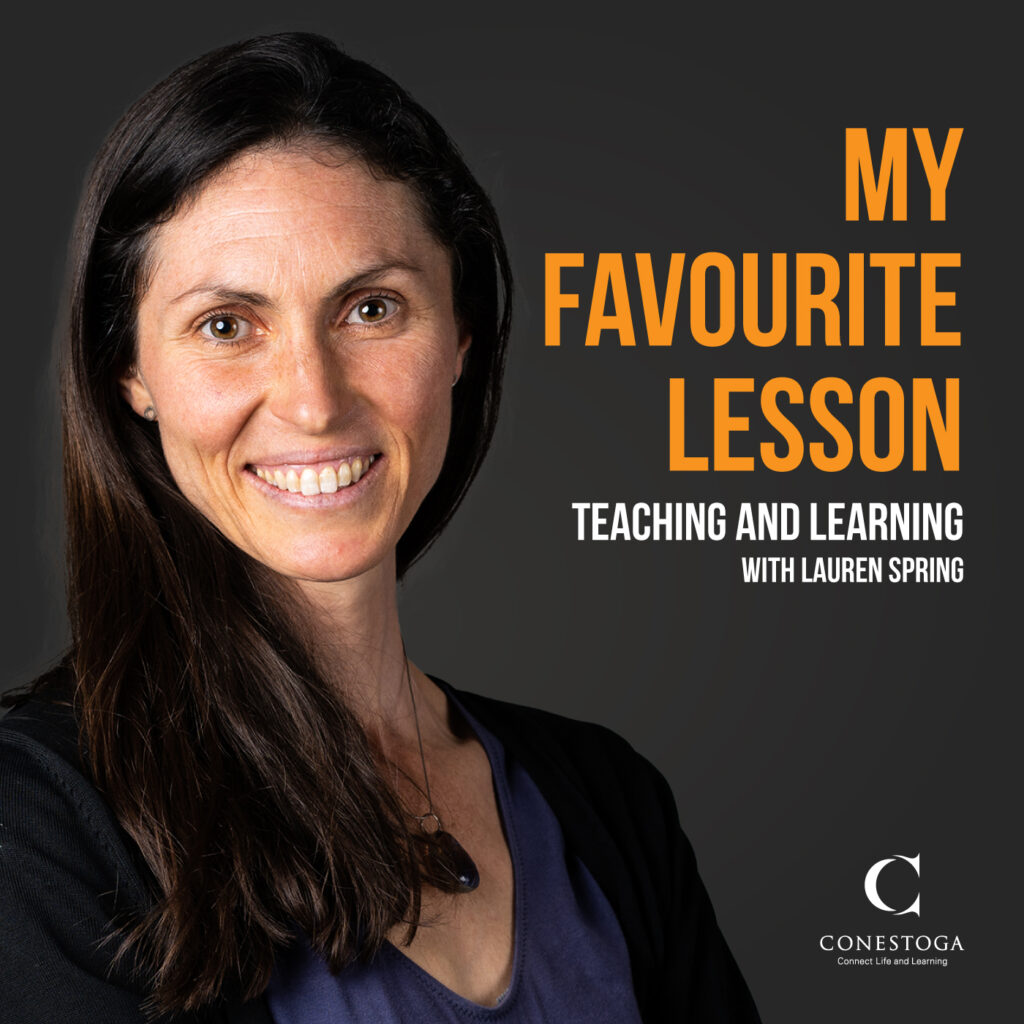
Teaching in Informal Adult Education Settings
In 2008, I found a happy home working in the education department at the Art Gallery of Ontario where I design and facilitate tours, programs, and workshops for diverse adult and student groups (including corporate clients, the Alzheimer’s Society; Senior’s Social events, with English Language Learners, those diagnosed with mental illness and addiction, and countless politicians and celebrities). I have a special appreciation for the programs I co-deliver with Indigenous colleagues and community members as we work together to “decolonize” collecting and pedagogical practices.
Here are a few links to some recent projects at the AGO:
A short article about the gallery’s partnership with the Alzheimer’s Society: https://ago.ca/node/35964
For more than a decade I have also been collaborating with mental health organizations to develop mental-health related programs for service users at the gallery. In the early days of the pandemic, when touring the physical space together wasn’t possible, I created a few videos on the topic:
Teaching in Formal Post-Secondary Settings
I have also had the pleasure of teaching with many different departments and post-secondary institutions including the University of Toronto (Sociology, Equity Studies, the School of the Environment, the Interdisciplinary Centre for Health and Society), Brock University (Adult Education), Wilfrid Laurier University (Global Studies) and for many years with the Interpersonal Skills Teaching Centre at Toronto Metropolitan University.
I have experience designing and conducting qualitative and quantitative research. Topics I am most passionate about include: constructivist and critical pedagogies, inclusive education, transformative learning, person-centred and relational care work in healthcare settings, critical disability and mad studies, environmental education and curriculum integration of PRME and SDGs, trauma, research-based theatre, role-play simulations, decolonization, museum studies, experiential learning, and feminist and arts-based approaches to adult education and community engagement.
Family and the Outdoors
I love being active—especially outdoors (swimming, hiking, paddling, running… you name it!) Here are some photos of me and my family. The first is of us canoeing along a river in Guelph and the second is of my husband and I taking turns carrying our daughter up the French Alps. He was born and raised in France and so we spend time with his family there each year.
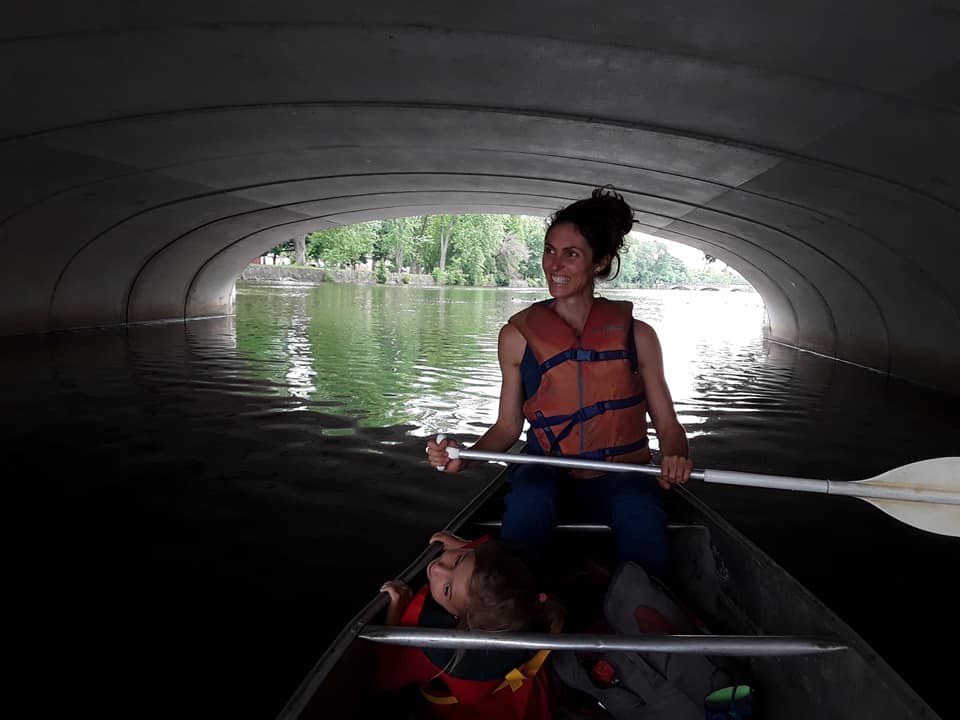
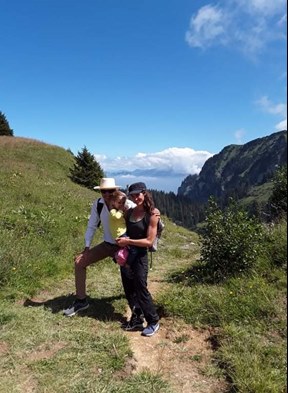
Conference Presentations and Publications
Prior to being hired by Conestoga College, I worked as a CIHR-funded Postdoctoral Research Fellow with Mount Saint Vincent University as part of a research team that explored the trajectories of home care clients in both Nova Scotia and Manitoba. Here’s a photo of me presenting some findings related to person centered care at the CAHSPR conference in 2022.
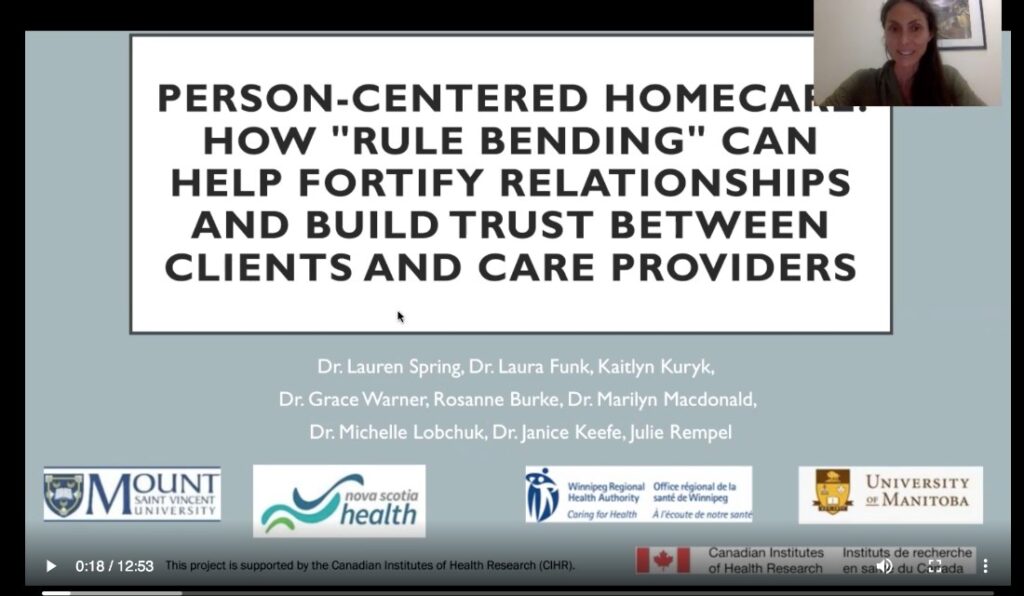
I have published numerous book chapters and academic articles on subjects such as: trauma-informed critical and feminist adult education; adult learning in both formal and informal learning environments; museum studies; arts-informed research; critical disability and mad studies; mental health; intersectionality; and patient-centered care. Some of the philosophies at the heart of improv and performance (such as the idea of “yes, and…” and “heighten and explore”) have become guiding principles in my everyday life and teaching as well.
Selected publications:
Peer-Reviewed Journal Articles
Funk, L.M., Kuryk, K., Spring, L., & Keefe, J. (2024). Problematizing Dominant Assumptions About Unpaid Support Through Exploring Case Study Profiles of Older Home Care Clients. Health and Social Care in the Community.
Spring, L., Funk, L., Kuryk, K., Warner, G., Macdonald, M., Burke, R., & Keefe, J. M. (2024). Person-Centered Home Care: Exploring Worker-Client Relationships Using an Intersectional and Critical Disability Framework. Journal of Applied Gerontology, 43(1), 101-109. https://doi.org/10.1177/07334648231201837
Davies, A., Spring, L., Adams, S. (2023). Mad Studies and pre-service early childhood education and care: Bringing Mad Studies to future practitioners and educators. Canada Watch.
Kuryk, K., Funk, L. M., Warner, G., Macdonald, M., Lobchuk, M., Rempel, J., Spring, L. Keefe, J. (2023). Ageing in place with non-medical home support services need not translate into dependence. Ageing and Society, 1–26. doi:10.1017/S0144686X2300047
Davies, A., Watson, D., Armstrong, B., Spring, L., Brewer, K.C., Shay, B., Purnell, A., Adam, S. (2023) Exploring Histories of ECEC to Evoke Questions Through Mad Studies: A Critical Proposition for Pre-Service ECEC. eceLink Journal.
Spring, Lauren. (2022). The Ethical Implications of Using Research-Based Theatre to Challenge Hegemonic Narratives About Mental Health. Qualitative Inquiry. Special Edition on Theatre Based Research and Ethics. Eds. Cox, S.; Guillemin, M.; Nichols, J; Prendergast, M.
Spring, Lauren and Clover, Darlene. (2021). Museums, Environmental Adult Education and Activist Imagination. Journal for Studies in Adult Education and Learning. Special Issue: What should transform? Adult education, sustainable development and environmental movements.
Clover, Darlene and Spring, Lauren. (2020). Museums, Scio-ecological thinking and the imagination. Quaderns d’educació contínua Special Edition Anthropocene eco-pedagogies for an active citizenry.
Spring, Lauren., Wunderlee, A., & Werhun, A. (2019). Sex Workers as “Concrete Others”. Canadian Journal for the Study of Adult Education, 31(2), 115-122.
Spring, Lauren, Smith, Melissa, DaSilva, Maureen. (2018) The transformative-learning potential of feminist-inspired guided art gallery visits for people diagnosed with mental illness and addiction. International Journal of Lifelong Education 31(1), 55-72.
Spring, Lauren (2017). Beyond PTSD: How stories and artworks that “make strange” can serve as signposts on new maps toward the communalization of mental health care. Health Tomorrow: Interdisciplinarity and Internationality Journal, (4), 88-123
Schott, Nicole & Spring, Lauren, Langan, Debra. (2016). Neoliberalism, pro-ana/mia websites, and pathologizing women: Using performance ethnography to challenge psychocentrism. Studies in Social Justice (Special Issue: Mental Health and Distress as a Social Justice Issue) 10 (1), 95-115
Spring, Lauren. (2012). “Yes, and…” Transcending the ‘incredible’ through humour after torture: A case study of improv theatre at the Canadian Centre for Victims of Torture. First Light Journal: Apathy to Action, pp. 15-18
Peer-Reviewed Book Chapters
Davies, A., Spring, L., Davies, A., Castrodale, M. (Eds.) (Forthcoming). Mad Studies and Education: Critical Pedagogy and Mad Praxis in the Classroom. Palgrave MacMillan
Spring, Lauren. (2021). Estrangement and Feminist Pedagogy in Research-Based Theatre About Madness in Normative structures, imaginative responses: Feminist aesthetic research and pedagogies of possibility. (Clover, D., Harman, K., Sanford, K., Williamson, S. Eds). Bloomsbury Publications.
Spring, L. (2020). Familiar brushstrokes, different narratives: Re-framing embodiment and the futurist free-word aesthetic with stories from female veterans of the Canadian Armed Forces. Feminist Critique and the Museum: Education for a Critical Consciousness. Brill Publishing.
Spring, Lauren and Gillian McIntyre. (2020). Calling rape “rape” and confronting difficult knowledge. Writing interpretive panels and facilitating guided tours from a critical feminist perspective for Early Rubens at the Art Gallery of Ontario. Feminist Adult Educator Guide to Aesthetic, Disruptive and Activist Strategies in Institutions and Community. University of Victoria.
Clover, Darlene and Spring, Lauren. (2020) Brigham, S.M., McGray, R., Jubas, K. (Eds). Adult education, learning, and museums. Charting pedagogical imperfections and their critical fault lines in Building on Critical Traditions: Adult Education and Learning in Canada. Thompson Educational Publishing.
Spring, Lauren (2017). Pathologizing military trauma: How service members, veterans, and those who care about them fall prey to institutional capture and the DSM. In Burstow. B (Ed). Psychiatry Interrogated. Palgrave Macmillan: New York.

